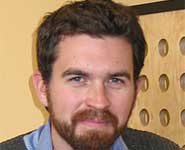Sep 17 2013
The ability to design and create new materials and pharmaceuticals at a fraction of today’s costs is just one of the possibilities that were described by Professor Jeremy O’Brien at the World Economic Forum meeting of the New Champions 2013 held in Dalian, China.
 Professor Jeremy O’Brien, Director of the Centre for Quantum Photonics
Professor Jeremy O’Brien, Director of the Centre for Quantum Photonics
Professor O’Brien, Director of the Centre for Quantum Photonics at the University of Bristol was invited to talk last week [12 September] on the future of ICT and the impact that the Quantum Technologies Revolution will have on the future of society and economics.
As one of only a handful of Young Scientist selected to give a talk, Professor O’Brien articulated his vision to an international audience of senior political and business leaders.
Professor O’Brien said: “This is a globally influential forum, with world leaders discussing key issues that will affect all our future.”
Quantum technologies offer ultra-secure communications, sensors of unprecedented precision and computers that are exponential more powerful than any supercomputer for some tasks. These technologies are destined to fundamentally change our lives and the first commercially available quantum devices are only now beginning to emerge.
As the holder of a prestigious Royal Academy of Engineering Chair in Quantum Engineering, Professor O’Brien has a ten year vision to engineer new quantum technologies that will inevitably disrupt todays ICT models, creating new businesses and valuable new markets.
The World Economic Forum Annual Meeting of the New Champions provides a platform for the rising generation of global leaders from business and society to contribute to broader policy discussions and engage with the world’s top business executives. The New Champions are led by the Forum’s growing Global Growth Companies Community as well as the communities of Technology Pioneers, Young Global Leaders, Global Shapers and Young Scientists.